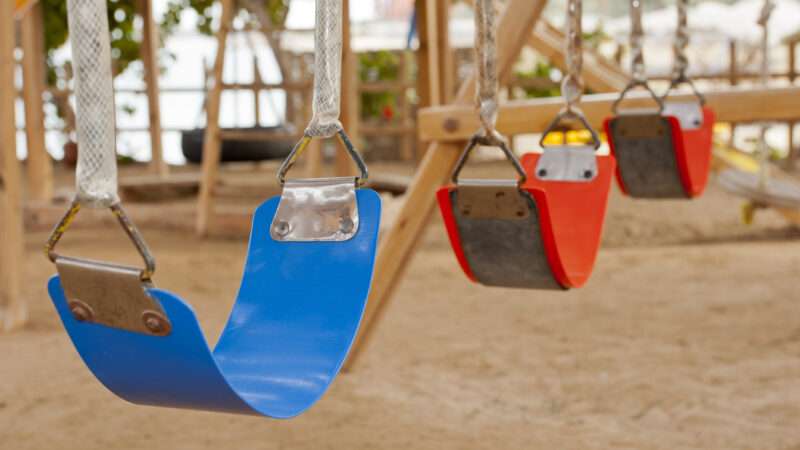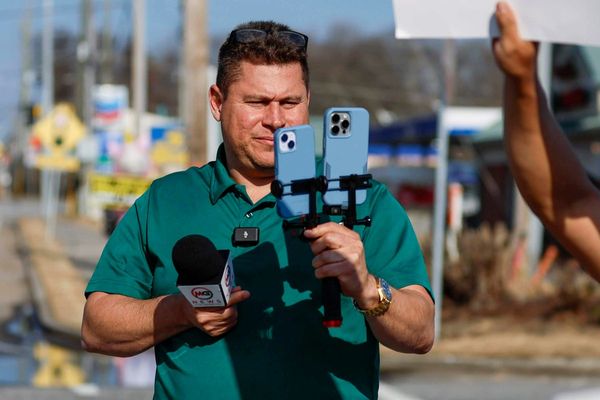
The Tucson mom found guilty of neglect for letting her 7-year-old son play at the park has finally had her name removed from Arizona's Central Registry, a government blacklist of unfit parents that is maintained by the Department of Child Safety (DCS).
While this is obviously a victory for the mom—and for common sense—the constitutional rights of countless other people are still at stake.
The appeal by Sarra (whose full name is being withheld to protect her identity) was handled by the Pacific Legal Foundation (PLF) and the Goldwater Institute, two nonprofit organizations that help defend individual rights. They argued that Arizona's actions were unconstitutional.
"But instead of responding to this brief, DCS decided to just permanently remove Sarra's name from the list," says Adi Dynar, an attorney at the PLF. "We suspect they didn't want this kind of ruling on the books, because that affects the other 81,000 names."
Perhaps the state thought it was better to lose one battle than to deal with an army of parents demanding justice.
The case against Sarra was this: In November 2020, as COVID-19 raged, she let her son and his friend, age 5, play at the park while she shopped for a Thanksgiving turkey.
This seemed prudent. The grocery was asking shoppers not to bring in kids, and the park was one that Sarra had played in herself as a child, about five blocks from the store. What's more, a friend happened to be teaching a tai chi class there. After about 20 minutes, the friend called Sarra about a police officer who was talking to her son.
When Sarra arrived at the park, the officer told her that she had committed negligence by leaving the kids alone, even for a short length of time in a safe, public place.
County prosecutors dropped all charges after Sarra agreed to take a "life skills" class. (Said class included advice on how to avoid angering a cop; truly, a worthwhile life skill.) But the folks at the DCS were not as easily appeased.
The agency ruled that Sarra had put her son at "unreasonable risk of harm for abduction, injury, harm from a stranger, exposure to drugs and death." That meant Sarra's name would go on Arizona's Central Registry—and remain there for 25 years.
Employers can access this registry, which essentially functions as a blacklist. People whose names are on the registry cannot get jobs involving children. This was a big problem for Sarra, who worked with refugees, helping them to find jobs and often providing child care.
Sarra took the Central Registry to court. I testified on her behalf, as a subject-matter expert. When the state argued that Sarra's son could have been abducted—a huge talking point for them—I asked the prosecutor if she knew how long it would take for a child to become statistically likely to be kidnapped by a stranger.
The answer: 750,000 years.
Nevertheless, Sarra lost out, and her name was added to the Central Registry. That's when the PLF and Goldwater Institute swooped in to help her with an appeal.
They drew up a brief arguing that the case against Sarra was unconstitutional because the court used a low standard of proof despite the high stakes. The DCS is allowed to operate off of "probable cause" rather than a "preponderance of evidence" standard for placement on the registry. Typically, "probable cause" is reserved for the opening of an investigation, not the determination of guilt.
The Goldwater Institute and the PLF also argued that the agency's system for determining guilt was manifestly unfair. The DCS brings the case against a parent, and if the parent is found guilty, they can then appeal, as Sarra did, to an administrative law judge. But if they're found guilty and want to appeal again, the next hearing is in front of the director of the DCS. Ultimately, the department ends up adjudicating itself.
"This means no judge, no jury, no nothing," says Dynar.
Thankfully, a new director took over the DCS at the start of 2023. This change in administration became the ostensible reason the agency dropped its case against Sarra. But her attorneys aren't buying it.
"Although we argued that the department was merely trying to escape a decision on the constitutionality of its actions—something that is not usually allowed—the Superior Court judge agreed to let the department abandon the lawsuit," writes Timothy Sandefur, vice president of legal affairs at the Goldwater Institute.
"Obviously our hope was that we would have had a ruling from the court on the constitutional aspects of the case," says Dynar.
Without that, the DCS is free to return to business as usual.
The post Mom Who Let Child Play at a Park Finally Removed From Unfit Parent Registry appeared first on Reason.com.







